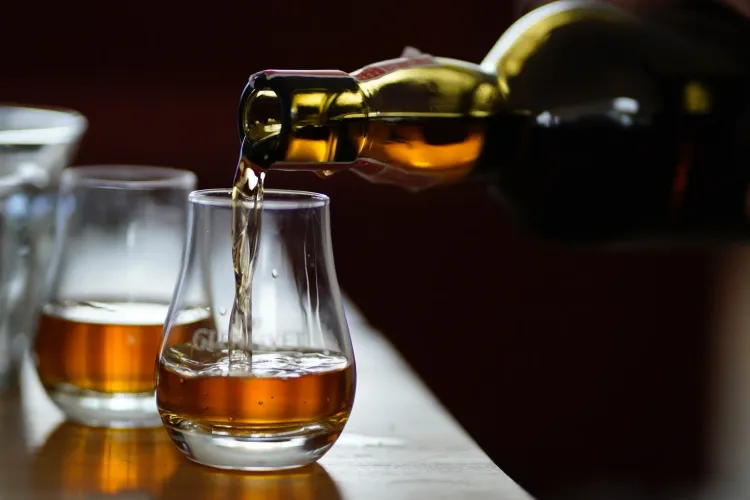Can Weight-Loss Medications Significantly Decrease Alcohol Consumption?

Synopsis
Key Takeaways
- GLP-1 analogues can significantly reduce alcohol cravings.
- Average alcohol intake decreased by 68% after four months.
- Many patients reported the effects as 'effortless'.
- This study highlights a potential dual benefit of obesity treatment.
- Research continues to explore the mechanisms behind these effects.
New Delhi, May 10 (NationPress) Recent findings indicate that medications like liraglutide and semaglutide, which are typically prescribed for weight loss, may also lead to a remarkable reduction in alcohol intake by nearly two-thirds. This research highlights the potential of these drugs to impact alcohol consumption significantly.
Alcohol use disorder is a recurring condition responsible for 2.6 million deaths annually, accounting for 4.7% of global fatalities. While therapies such as cognitive behavioral therapy (CBT) and motivational techniques can yield short-term success, about 70% of individuals relapse within the first year.
The study revealed that Glucagon-like peptide-1 (GLP-1) analogues—medications designed for obesity treatment—likely diminish alcohol cravings within the brain.
After four months of treatment, average alcohol consumption plummeted from 11.3 units/week to 4.3 units/week, representing a decrease of nearly two-thirds. For regular drinkers, intake fell from 23.2 units/week to 7.8 units/week in the same period.
This 68% reduction parallels the effects seen with nalmefene, a medication used in Europe for alcohol use disorder, according to Professor Carel le Roux from University College Dublin, Ireland.
"The precise mechanism by which GLP-1 analogues lower alcohol intake is still under investigation, but it is believed to involve the suppression of alcohol cravings originating in subcortical brain areas that operate outside of conscious control. Consequently, patients describe the effects as 'effortless'," Roux stated.
This study was published in the journal Diabetes, Obesity and Metabolism and presented at the European Congress on Obesity (ECO 2025).
While GLP-1 analogues have shown promise in animal studies regarding alcohol intake reduction, human research in this area is limited.
To gather insights, the research team analyzed the alcohol consumption of patients undergoing obesity treatment at a Dublin clinic.
The real-world study included 262 adults with a BMI exceeding 27 kg/m² (79% female, average age 46, average weight 98kg) who were prescribed GLP-1 analogues liraglutide or semaglutide for weight loss.
A total of 188 out of the 262 patients were monitored for an average of four months, with none reporting an increase in their alcohol consumption.
Professor Roux added, "GLP-1 analogues have demonstrated efficacy in treating obesity and mitigating various obesity-related complications. The emerging benefits beyond weight loss, particularly regarding alcohol consumption, are now being actively explored with promising outcomes."










